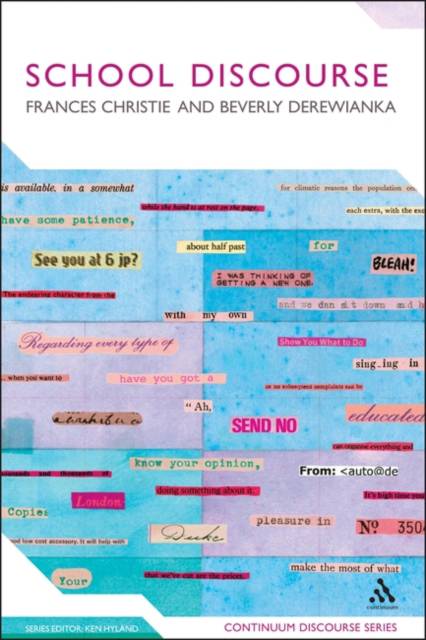
- Afhalen na 1 uur in een winkel met voorraad
- Gratis thuislevering in België vanaf € 30
- Ruim aanbod met 7 miljoen producten
- Afhalen na 1 uur in een winkel met voorraad
- Gratis thuislevering in België vanaf € 30
- Ruim aanbod met 7 miljoen producten
Zoeken
School Discourse
Learning to Write Across the Years of Schooling
Frances Christie, Beverly Derewianka
€ 88,45
+ 176 punten
Uitvoering
Omschrijving
Writing development has been a key area of research in applied linguistics for some time, but most work has focused on children's writing at particular ages. Christie and Derewianka draw on extensive research in both primary and secondary years to trace the developmental trajectory from age 5 or 6 through to 18. Using a systemic functional grammar, they outline developmental changes in writing in three major areas of the school curriculum - English, history, and science - as children move from early childhood to late childhood and on to adolescence and adulthood. The book considers the nature of the curriculum at various stages, discussing the interplay of curriculum goals, pedagogy and developmental changes as children grow older. It also explores how emergent control of the different subjects requires control of various subject specific literacies and considers the pedagogical implications of their findings. School Discourse will be of interest to anyone involved in the writing performance of children in schools, particularly applied and educational linguists.
Specificaties
Betrokkenen
- Auteur(s):
- Uitgeverij:
Inhoud
- Aantal bladzijden:
- 280
- Taal:
- Engels
- Reeks:
- Reeksnummer:
- nr. 12
Eigenschappen
- Productcode (EAN):
- 9781441131317
- Verschijningsdatum:
- 11/11/2010
- Uitvoering:
- Paperback
- Formaat:
- Trade paperback (VS)
- Afmetingen:
- 156 mm x 234 mm
- Gewicht:
- 394 g

Alleen bij Standaard Boekhandel
+ 176 punten op je klantenkaart van Standaard Boekhandel
Beoordelingen
We publiceren alleen reviews die voldoen aan de voorwaarden voor reviews. Bekijk onze voorwaarden voor reviews.








